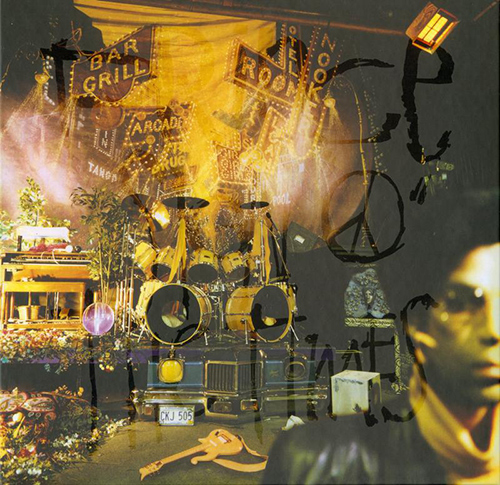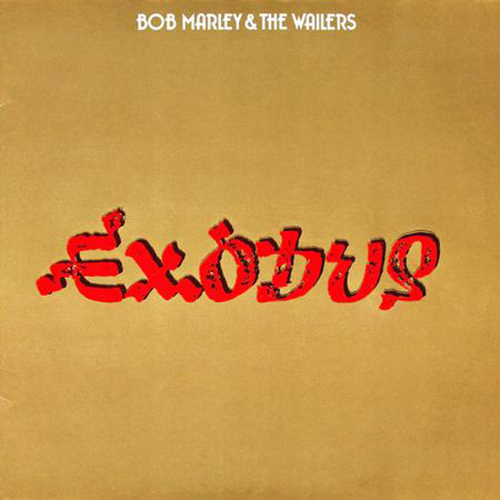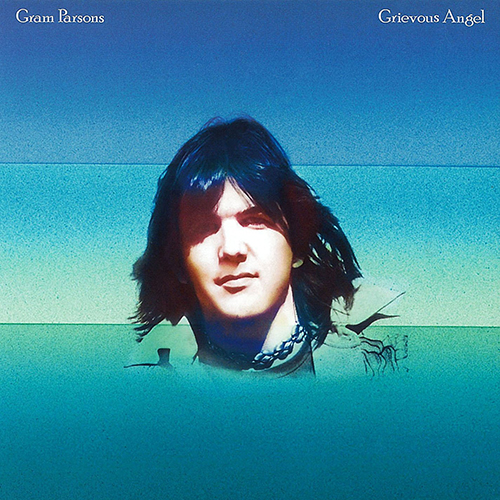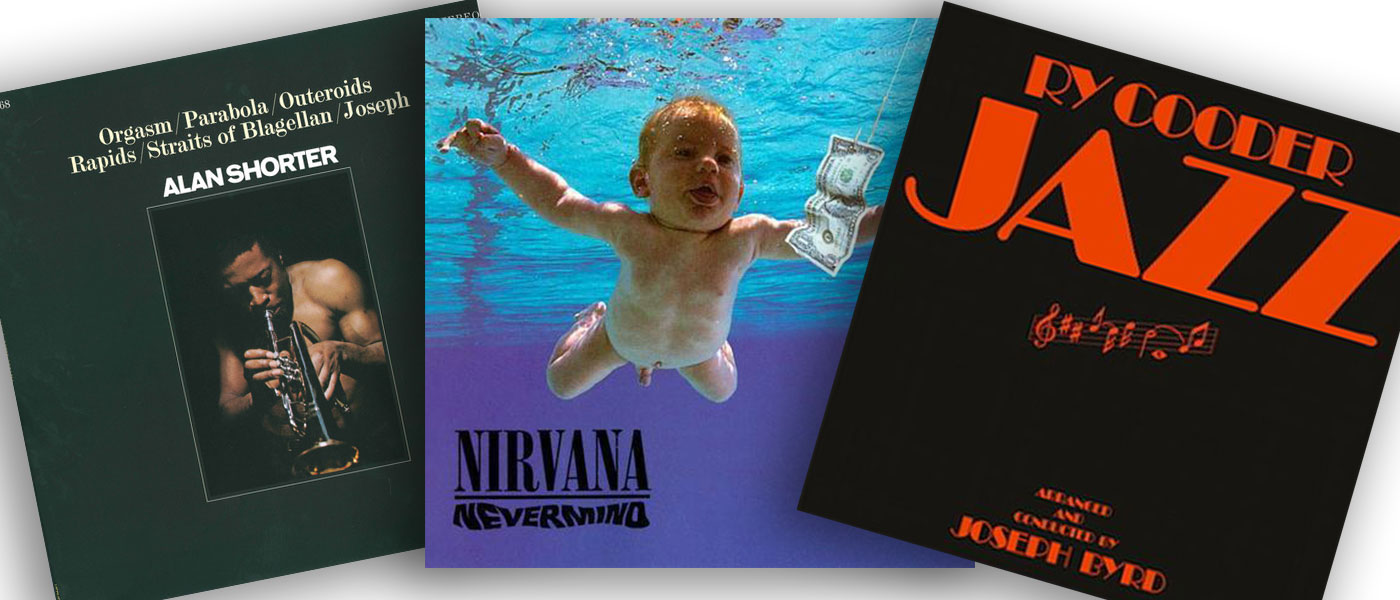
I did a fair amount of bellyaching about the current state of vinyl last month. My ears were in a dark place. And I stand by my report. There could be a million reasons for the decline in quality, but the end result is the same: rampant frustration in my listening room. So, I thought I’d try something a bit different for February. I picked up a few single albums that were parts of larger series. I figured that might give us a microcosmic look at whether or not it’s safe to wade into deeper sonic waters by picking up multiple titles within the same series or by the same labels. As a bonus, I have original pressings (or at least much earlier versions) available for comparison. Let’s start with one of my favorite albums (Muhammad Ali voice) “of all tiiimes”: Prince’s Sign “O” the Times which was recently remastered by Bernie Grundman… as was my original.
First, a little history: Even casual fans realize that Prince was, shall we say, prolific. Like, Neil Young on speed prolific. Both artists shelved works that would have been crown jewels in most any other artists’ oeuvres because they’d moved on to the next symphonies in their heads before their latest works could be manufactured. But Prince was especially white-hot at around the time that Sign was being conceived. He’d begun an album with his band, dissolved that band, scrapped that record, made at least one other full-length to be unveiled under an alias/alter-ego, pivoted, then moved onto Sign without releasing either. (The songs would eventually make it out of the vault and into fans’ ears over the course of multiple releases, including the expanded versions of Sign that were released as part of this series in late 2020.) So, Prince was working through a fever of creativity that his record company, his management, and his musical partners were having a hard time navigating. The record company even had to dictate that Sign be pared down to four sides versus the six that Prince submitted. Dude was working.
Secrets Sponsor
I’m not aware of a way to hear the expanded version that Prince initially proposed, but it’s hard to imagine that it would have been superior to the one I’m listening to now. The final product was wildly concise. Wild in that multiple genres are explored, expanded, and deconstructed. Concise in that the songs form an undeniable whole despite the experimentation. “Adore” and “Housequake” are different planets, but they inhabit the same galaxy. If you can breathe on one, you can on the other. We won’t go into a song-by-song breakdown because fans will almost certainly have already done that on their own, and that type of deep dive is probably available elsewhere anyway. Cliff’s Notes: the album is topical (title track), sexy (“Slow Love”), banging (“It”), and grinding (“Hot Thing”).
My original copy, while a treasure, fatigues my ears during a focused, complete listen. It’s not overly bright, but there’s a harshness that creeps in after a few songs. Maybe it’s the electric drums. Those funk snares are like bullwhips to the eardrum after a fashion. Grundman smoothed that out on the newer release. The bass is enhanced, but not to the point of saturation. The mid and high frequencies are still quite detailed and easy to digest. There are other little details that Prince lifers will find intriguing too. The vocals during “It” are noticeably less forward on the 2020 take, for example. But, on the whole, that version is faithful to the original, it’s just that the edges have been rounded off a bit.
Thrillingly, the latest version was pressed at Optimal, one of my most trusted (and reputedly Grundman’s preferred) pressing plants. My copy is flawless until you get to “The Ballad of Dorothy Parker,” which has a visible flaw that appears to be as a result of mishandling rather than a true pressing defect. I have a replacement forthcoming.
There’s so much Prince music being reissued that it’s difficult to tell one series of releases from the other now. But Grundman remastered 1999 at roughly the same time he did Sign, so I’d imagine that one’s safe to explore, at least (although it was pressed at MPO, which is a step down, in my opinion). Kevin Gray did some work on Prince’s catalog around 2009 to 2011, and I’d imagine those are equally great. If you want BG’s take on Sign, it’s the only one that has the album’s title spot-varnished across the front cover. You can see it if you look at it in the right light. And this remaster demos the work in museum quality lighting too. Still available. Act now.

As much as I love Bob Marley’s music, I only had three of his records in my collection until I started collecting titles from his reissue campaign from late 2020. One of the “original three” is Talkin’ Blues, my favorite of his releases, but one that is absolutely not representative of his studio work. (It was recorded in a radio station, and my copy is abominable.) I also have an Island Records version of the classic Live! and a Jamaican pressing of Natty Dread (also horrendous), both of which I replaced with copies from the newer series. If you’ve read a lot of mysteries, you may have detected where this is going already…
The reissues from a couple of years ago were mastered at half-speed by Miles Showell at Abbey Road and pressed at Optimal. That last bit of info is key. They do really strong work, almost always. Even in 2022. (See prior Sign “O” the Times write-up.) The half-speed mastering process supposedly results in more detailed highs and a superior soundstage, according to the marketing materials. (Each record comes with a foil-stamped “certificate of authenticity” designed to look like you just graduated from college or something.) All of that is intellectually interesting, but music is an emotional experience at its best. Furthermore, the first thing I noticed while listening to the new reissues was the enhanced bass, not the advertised highs. But it worked. I’m all in. I started with two of the titles, then quickly bought four more. I’ll likely get the rest excepting Confrontation. I’m not that interested in doctored-up posthumous releases, in general.
Live! is an inherently muddy recording. You can hear the room and the crowd. You can almost smell the indica and the sweat, and the heat is oppressive. The whole album sounds humid. My original has a bit more air in the highs, but the pressing is subpar. The reissue somehow simultaneously adds bass and more detail such that a little guitar lick during “No Woman” is buried more deeply in the mix but is also easier to discern. And the pressing is so quiet that I thought my amp was on the wrong channel when I dropped the needle for a first listen.
Natty Dread is a little easier to compare, but my original, as noted, was pressed in Jamaica, as was my copy of Talkin’ Blues. Both suck. I’d love to visit Jamaica; I wouldn’t send my masters there to have an album pressed. Tuning out the surface noise reveals a thinner original sound that fatigues the ears after about a side of listening. The newer version has the enhanced, but tighter, bass along with the increased clarity across the tonal spectrum. Those are the only two originals that I have that were also reissued as part of the half-speed series. I’m purging both originals and coveting both reissues. (It’s worth noting that the lower frequencies on my reissue of Catch a Fire are much looser. Some folks might find them saturating, but my system stands up to it just fine. I enjoy the listen, but it does suggest that the quality of the reissues is somewhat inconsistent, maybe.)
Which brings us to Exodus. For whatever reason, as much as I love Marley’s music, I almost never thought to play his records. Until now. Maybe it was because my copies of his records were of inferior quality. Maybe it was because I could hear his music in passing on any given day anywhere I went, and I didn’t need to reach for his discs when I could extract his tunes from the ether. Like Zeppelin. Whatever the case may be, those days are over. We’ve entered a new epoch. And it’s glorious. This version of Exodus is amongst the finest sounding popular recordings in my collection. I don’t have another copy for comparison, but everything about this one is damn near perfect. The bass is tight and gets in your chest while the lead electric guitar lines sort of float from the back of the stage to the front with great separation and clarity amongst instruments. The hand drums pop and are almost disconcertingly lifelike. The songwriting is exemplary no matter how deep you dive, and the whole thing feels like a heavy celebration. I’m sure the title track kept the dancers grooving, but they could have just as easily been studying and planning entire social movements based on the lyrical content.
Secrets Sponsor
If you’re a Marley fan and you missed these, I’d circle back. The titles are still readily available, but some are getting harder to find than others. I’d start with Exodus, no matter what. Optimal did a phenomenal job with the pressings, and the mastering is way above average, even for the titles that don’t quite measure up to the others. And even though they were mastered from high-res files! Highly recommended.

Our last shootout is admittedly a bit of a stretch. I canceled my Vinyl Me, Please membership a few months back due to consistent quality control issues. Specifically, their records that were being pressed at GZ often had defects that affected entire songs and sometimes sides. There was an online uproar, and assurances were made that the issues had been identified and remedied by the staff at GZ. Right around this same time, VMP hit on a few titles to be reissued as AAA pressings that I wanted in my collection. One was Rejuvenation by the Meters, another was Live At Carnegie Hall by Buck Owens. And the one that brings us together right now is Grievous Angel by Gram Parsons. Now would be the time to grab a beer to cry in if you’re into that sort of thing.
My first copy isn’t quite a 1974 original. It’s a repress from ’78. I’d imagine that the same metal parts were used for both versions, and there almost certainly wasn’t any digitization added to the mastering process, regardless. So, it should be comparable to a first run. The late 2021 reissue by VMP is free of digits too unless they’re lying. I don’t have any reason to suspect that they are. “(AAA) Lacquers Cut From the Original Analog Tapes by Ryan Smith…” according to the marketing. I suppose there’s some wiggle room in there, maybe. “Original analog tapes” is different than “original master tapes.” Maybe they just used the earliest, best source they could, but this is an analog production, nonetheless.
The pressing issues that VMP was experiencing last year created a less than ideal environment for listening to new records, certainly. VMP’s glacier-inspired shipping process is so slow that I often spent weeks awaiting delivery of a record that was ultimately unlistenable. What used to be an exciting event had turned into an exercise in managing anxiety and crushing disappointment. Really, that has become true when exploring works from all but the most renowned audiophile labels, and even then, success can be elusive (I got a bad one from Speakers Corner recently, for crying out loud.) So, I ordered the Meters record and Grievous Angel with a fair amount of trepidation, and with the knowledge that VMP’s overworked customer service department might have to get involved yet again. To their credit, they do fantastic work, but they’d amended their practice of replacing defective copies slightly so that you got three chances to procure a well-made album before you were faced with the option of settling for a defective one or accepting store credit with which to purchase more defective records.
But they seem to have honestly worked through the pressing issues, as best I can tell. Small sample size, but still. Neither my copy of Rejuvenation nor Grievous Angel are flawless, but they’re well within the bounds of acceptability for a reasonable buyer. Maybe a stray pop or tick here and there, but nothing that repeats. I’m pretty confident that if either had been problematic, they would have been replaced with copies that weren’t. And I’m thrilled that I didn’t have to go down that road.
Because I was standing there with my thumb out ready to take a dark ride if needed. Ryan Smith’s mastering on Grievous makes for such a transparent listen that I first mistook the sound of a pick against guitar strings as a tick in the pressing. It’s that clear. The cymbal work creates a similar effect. Emmylou Harris’s voice jumps from the stage into your living room such that you could almost touch her. Gram’s voice has always walked such a thin line between emotional heft and complete breakdown that you’re relieved when he makes it through a song, and that effect is heightened by the clarity of this release. “Love Hurts” and “$1000 Wedding” are especially delicate while the fake crowd noise during “Cash On the Barrelhead/Hickory Wind” actually places you square in the honky tonk action. If you’re a fan, you’ll want this reissue to supplement your original for the increased tonal spectrum and otherworldly clarity.
Pretty much any supply chain that you can imagine has been negatively impacted by the events of the previous two years. Pressing facilities can’t keep up, and VMP has had to start pressing their boutique Classics track at GZ as opposed to QRP. Which is a nightmare for audiophiles, and I won’t be participating just based on principle. But I’ll keep an eye on their Hip-Hop, Country, and Essential releases, and I’ll keep hoping that the recent improvements hold. At least until the next global disaster. Until then, get in while the water is still warm…


